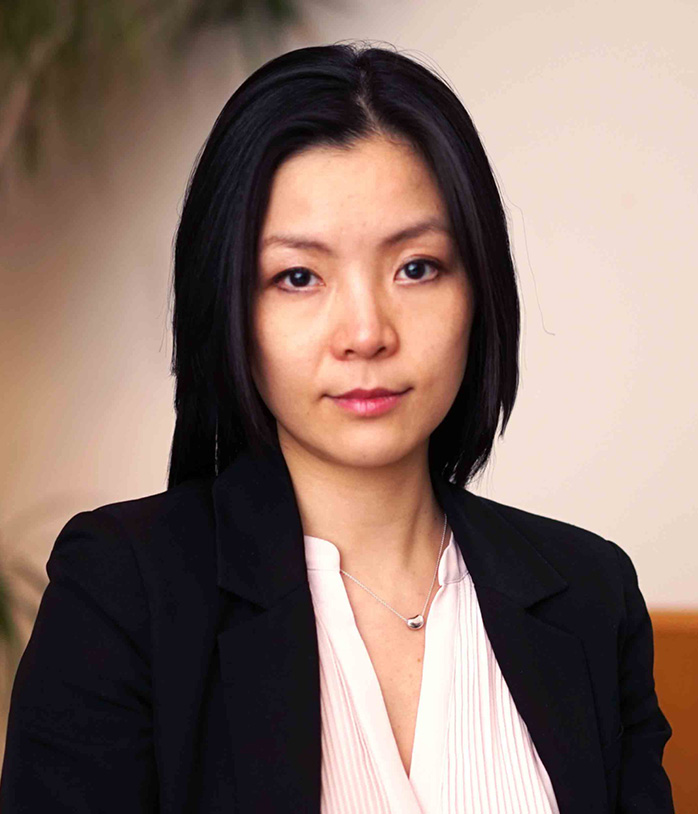
Jun Ping, chair of TEI’s Canadian Commodity Tax Committee, a director of TEI’s Toronto Chapter, and a chartered professional accountant, has always believed in the importance of communication skills and community interactions for tax professionals. In fact, advocating for the role of communications skills in tax is what helped Ping gain entry into the profession.
“A recruiter said, ‘You need to convince me why a marketing major who is a tour guide wants to work as part of a tax team.’ Well, how you communicate with people is another skill set,” she says. “You need to be able to train other departments on how to use tax codes. You need to talk with auditors. It’s not just crunching the numbers.”
What Ping enjoys most about working in tax is collaborating with colleagues and advocating for issues that affect tax professionals. As chair of the Canadian Tax Commodity Committee, Ping has contributed her trademark enthusiasm and collaborative approach to many of the committee’s initiatives. “As [a member of] an Institute committee, what I like is that’s where you go out and you tell the [Canada Revenue Agency] what it’s really like working in the industry and what actually works in real life,” Ping says.
Getting a group of people with different priorities to sit at the same table and work out feasible solutions is something that Ping finds particularly satisfying about working in tax. One of her proudest achievements was taking part in crafting legislation to close the gap between what the Canada Revenue Agency (CRA) audits and what the Department of Finance Canada intends.
“That initiative is closest to my heart, because it had been dragging along since 2014,” Ping says. “I can finally see the light at the end of the tunnel now, and this is important because our industry does a lot of joint ventures that are impacted by this legislation. And I can’t take all the credit [for the work], because we all work together as a group.”
An Unexpected Path to Tax
Ping’s dreams for her life originally lay in a direction that differed completely from tax: she wanted to be a ballerina.
“When I was a little girl, I went to ballet school. I didn’t think about anything else,” Ping says. But while she loved dance and performance, her mother encouraged her to think about focusing on her academic work to create a more stable future, especially as a Chinese immigrant to Canada. Ping was able to find a way to combine her mother’s advice with her affinity for performance.
“I came [to Canada] as a teenager. So I studied in high school and then had to pick a major at my university. I didn’t want to take accounting; I wanted to pick marketing, because it sounded more fun. You had to make presentations and do more engaging stuff.”
Ping’s natural talent and enthusiasm for communication also extended to how she made a living while attending school. “I found a tour guide job part-time. It paid my tuition fees and living expenses. I would do tours in the summertime, go back to school in September while doing tours, and hibernate in the winter. It was a great lifestyle,” she says.
After getting a job with the CRA, Ping took the opportunity to build expertise in giving presentations about CRA programs and interacting with audiences while also learning about tax. “Payroll tax, income tax—the CRA trains you for everything,” she says. That extensive training helped her find a job outside government working for a supermarket chain, which brought her deeper into the world of in-house tax. And when a larger conglomerate bought out the supermarket chain, Ping was contacted by a recruiter from Enbridge, a multinational pipeline and energy company, where she has been ever since.
For Ping, tax isn’t just a specialized field of knowledge; it’s also about clear communication with different audiences to create trust and strong relationships. “I didn’t follow the traditional path, and you never know where life is going to take you,” Ping says. “All the skill sets I developed over time have been very beneficial. From a tax perspective, I’m not just keying the numbers. You need to deal with internal and external stakeholders. You need to be able to put information together and manage people’s expectations. That’s communication and project management.”
Starting a New Chapter
The things Ping loves—spontaneity, pushing herself out of her comfort zones, meeting new people—provide a bridge between what she finds professionally and personally fulfilling. They’ve led her from childhood dreams of ballet to being a professional specializing in Canadian in-house tax and helping to shape Canadian tax legislation. She says the support she has found in TEI’s community has been incredibly helpful as she has grown her career, particularly when she was recently pregnant with her first child.
“From the Institute and Toronto side, there was so much support, and even now it’s helpful because I need to talk to adults, I can’t just always talk to my baby,” Ping says. “It gives me work I can do that’s not just being a parent.”
After three years as a director of TEI’s Toronto Chapter, Ping will end her tenure this June. She looks forward to spending more time taking dance classes like ballroom and traveling with her husband and young child.
“I love planning our routes and itineraries,” Ping says. “My friends and family keep telling me I need to relax more. I’m very much a scheduler. I’m excited to introduce my baby to a world of travel.”



